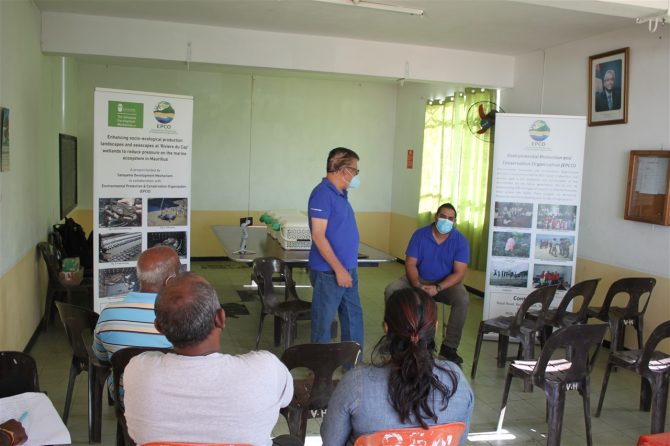SDM Project: Enhancing socio-ecological production landscapes & seascapes at ‘Riviere du Cap’ wetlands to reduce pressure on the marine ecosystem in Mauritius
10.03.2024
SUBMITTED ORGANISATION
Environmental Protection and Conservation Organisation (EPCO)
PARTNER ORGANISATIONS
Le Morne Basket Trap and Line Cooperative Society
DATE OF SUBMISSION
24/06/2022
REGION
Africa
COUNTRY
Mauritius
KEYWORDS
SEPLS, Wetland, Mauritius, mari-culture
Link
Abstract
The project site which was a dumping ground was surrounded by mountains and was found at the bank of a river joining the ocean. The flora and fauna are usually very rich in those waters due to its somatic nature. This has called for this project to restore and revitalise this SEPLS so as to provide essential ecosystem services which would benefit the fishermen community in Maconde village. The main deliverables of the project were to (a) provide an introductory workshop on SEPLS among 50 registered fishers of Riviere du Cap; (b) enhance the project site by cleaning it and enhancing it; (c) carry out capacity building workshops on crab culture; (d) build a floating structure and do an onsite mud crab culture demonstration. The main outcome of the project was to have better understanding of SEPLS among the fishermen communities in Maconde village. Moreover, they are now fully aware on the importance of SEPLS and also learned about its benefits. The mud crab project demonstration also boosted the importance of SEPLS among the communities hence encouraging them to better preserve it. The action was in line with all the strategic objectives of the IPSI Plan of Action 2013 – 2020 especially to objective 2. This project demonstrated that an abandoned wetland could generate income for the fishermen communities of this area. It has also made them realise the importance of SEPLS since this concept was new to them. The project has also showed that a whole community can work together to improve their livelihood while benefiting them for a long term. The main lesson learned from this project is that even an abandoned site can be transformed and revitalised only if there is a strong will among the communities. This can only be achieved if the community voice is heard.




